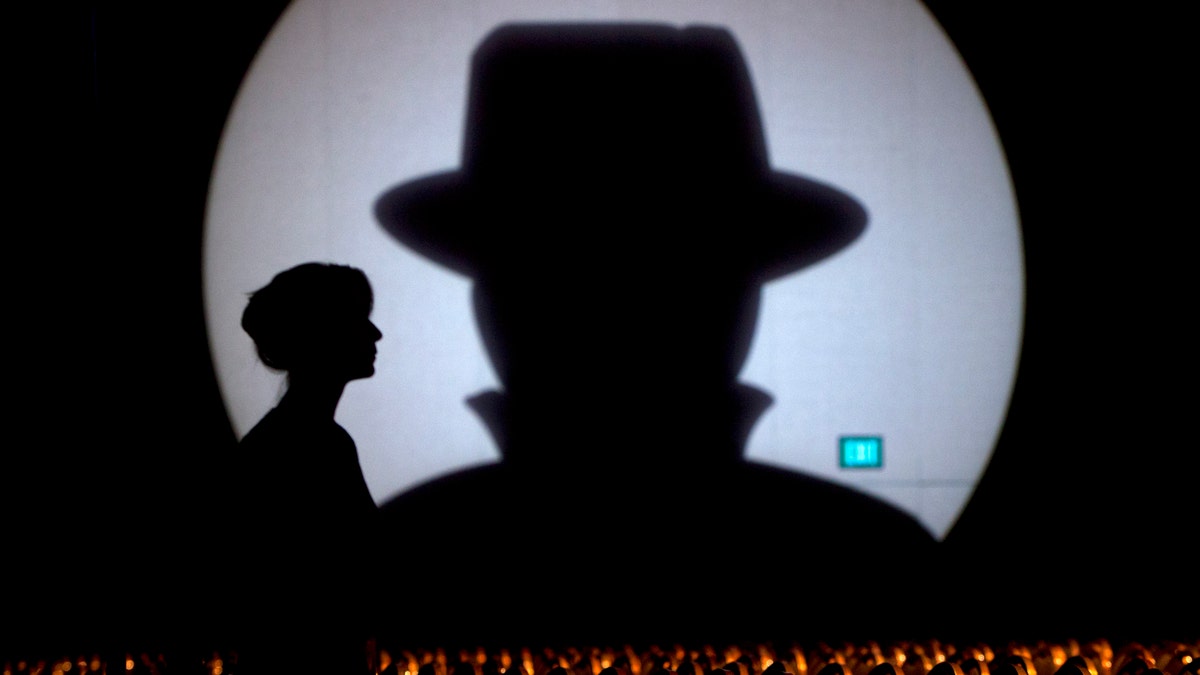
Speaker liaison Genevieve Netter is silhouetted against a Black Hat logo during the Black Hat USA 2014 hacker conference at the Mandalay Bay Convention Center in Las Vegas, Nevada August 6, 2014. REUTERS/Steve Marcus (UNITED STATES - Tags: SCIENCE TECHNOLOGY TPX IMAGES OF THE DAY) - RTR41H1N (REUTERS/Steve Marcus)
You may have heard of ComicCon, but in an era where cyber reigns you should know about DEF CON.
The best code slingers in the world are hitting Las Vegas this week for the 22nd annual largest and longest-running hacking conference.
More than 10,000 people are participating in the intense four-day event, which kicked off at the Rio Hotel. The greatest hackers converge for briefings, competitions, networking and a whole lot of fun.
If you want to catch up on the latest hacks, new vulnerabilities and get up to speed on computer bug bounties then this is the place to be.
Given that creative minds often excel at pranking, organizers at the DEF CON and Black Hat conferences send tips to journalists in advance to help them avoid cyber pitfalls.
For example, attendees are encouraged to take steps to safeguard hotel room keycards since devices may be circulating that can copy your key from a distance.
ATMs and Wi-Fi networks in the vicinity also warrant caution and using gifts, like seemingly innocent-looking USB drives, might not be the best idea.
This year the extremely reclusive John McAfee, founder of the McAfee antivirus software company, is the surprise keynote speaker.
“I believe that the world needs the collective talents of these individuals now more than ever,” he said. “Our fundamental right to privacy is being eroded at an alarming rate by invasive and misappropriated technology, and as privacy is diminished, so are our freedoms. We must take a stand now and join forces, or I fear this erroneous turn will soon become irreversible.”
Beyond the Briefings
DEF CON is home to cutting edge briefings, but it is also the setting for competition on an epic scale.
There are fun, light-hearted, contests like the “DEF CON Beard & Moustache Competition” and there are ones that reflect the compassion of participants like the “Be The Match Foundation – Bone Marrow Drive.”
There are also lots of other contests and games away from the keyboard like the self-explanatory "Beverage" Cooling Contraption Contest (BCCC) and the lock-picking contest “Black Bag.”
Jeff Moss, DEF CON’s founder, who is also known as ‘The Dark Tangent,’ has introduced the “Tamper Evident Village” that challenges participants to defuse a bomb. It’s described as “Bring your own tools, have an action hero moment for yourself.”
Spot the Fed
A long running and popular tradition at DEF CON is playing the "spot the fed" game. DEF CON also attracts government employees from the likes of the FBI and NSA, as well as police officers. Attendees try to spot the “feds” who are trying to blend in.
In the past, The Dark Tangent asked the NSA and other government agencies not to attend in any official capacity.
His blog posted a statement on the subject entitled "Feds, We Need Some Time Apart." It has been more than a year since the infamous Edward Snowden leaks kicked off, but it is too early to tell if the reception to government employees at DEF CON will be any warmer this time round.
Wall of Sheep
The "wall of sheep" is another recurring game at the conference. For those who failed to heed the friendly heads-up to be careful, the partial names and passwords of attendees who connected to the unsecured Wi-Fi network are displayed on the “wall” as a fun gentle warning to learn to think before you type.
Movie Night
In addition to the large scale partying, there are also events like movie night. Tonight ‘The Signal,’ a story about hackers on a road trip to DEF CON, is being shown.
World Class Competitors
Hackers also battle for supremacy in a number of hard-core contests that pit the very best against the very best.
“Capture the Flag” is an annual fixture and the competition is so fierce that some spend competitors spend the duration of the conference working on winning the prestigious title.
Another event this year is the wittily-entitled “SOHOplessly Broken.” Despite plenty of research indicating that SOHO (small office/home office) devices are highly vulnerable to attack, manufacturers have failed to respond to calls to better protect users.
In the first part of the contest, hackers devise their own vulnerabilities that could be applied to routers, internal networking hardware, and mobile Wi-Fi hotspots. The second part is a sort of relay race where two teams race to crack a series of routers.
Competitions like these have been invaluable in identifying vulnerabilities. And when top talent crack these tough puzzles, it can spell good news for the Average Joes lacking elite cyber skills.
